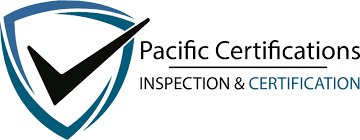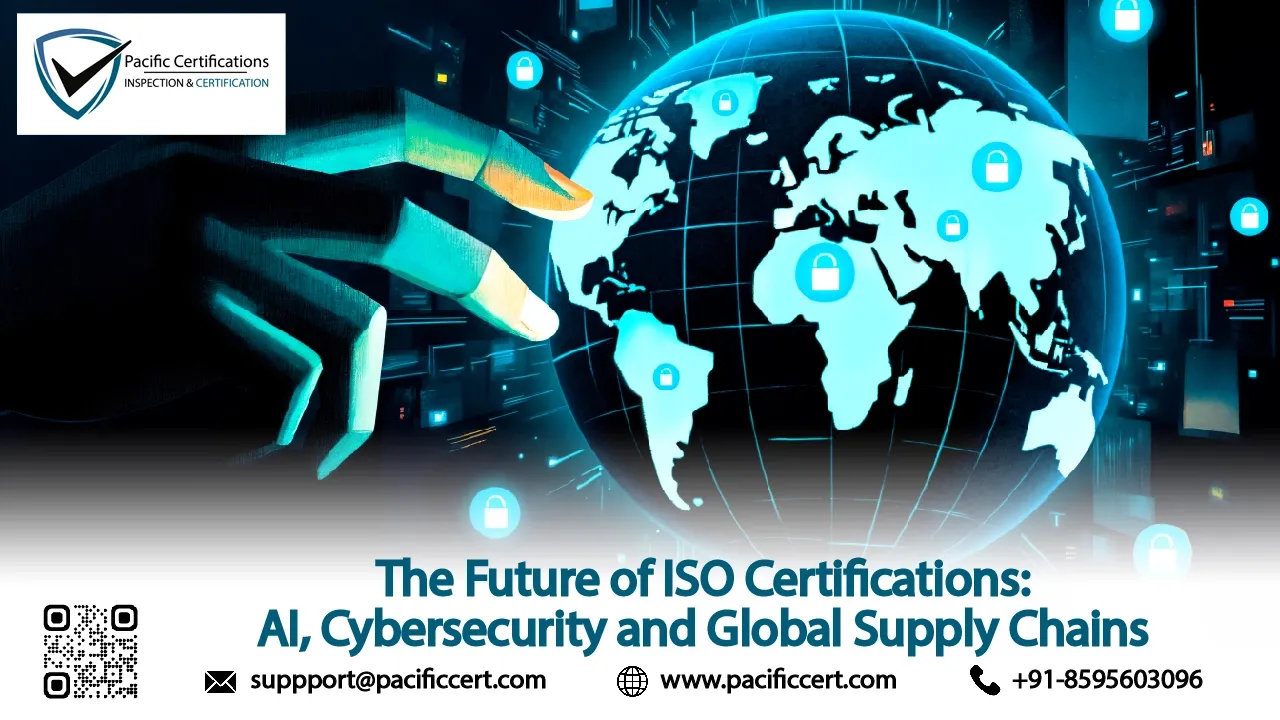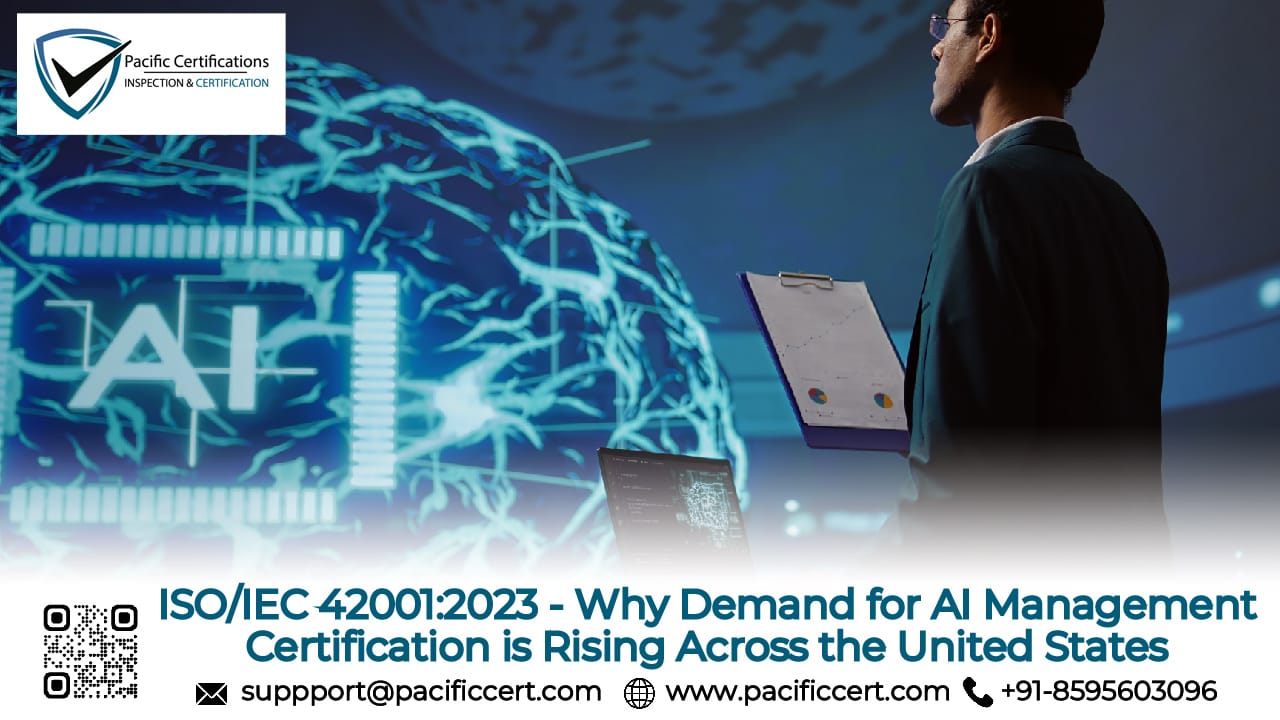
The year 2025 marks a turning point in the evolution of artificial intelligence across the United States. From San Francisco’s tech hubs to New York’s financial corridors, AI adoption is reaching unprecedented levels. However, with innovation comes increasing scrutiny, ethical dilemmas and unpredictable AI behavior are raising alarm across industries. This is precisely why ISO/IEC 42001, the world’s first AI Management System standard, is experiencing a surge in demand across the U.S. As businesses and public institutions grapple with the risks and responsibilities of AI, this international standard is emerging as a critical framework for managing and governing artificial intelligence in a structured way.
What is ISO/IEC 42001:2023?
ISO/IEC 42001:2023 defines a comprehensive AI Management System (AIMS), a framework of processes, responsibilities, and controls designed to ensure the ethical, transparent, and risk-mitigated development and use of AI. Unlike general management standards, ISO 42001 is tailored to the unique lifecycle of AI systems, from data acquisition and algorithm development to model deployment and performance monitoring.
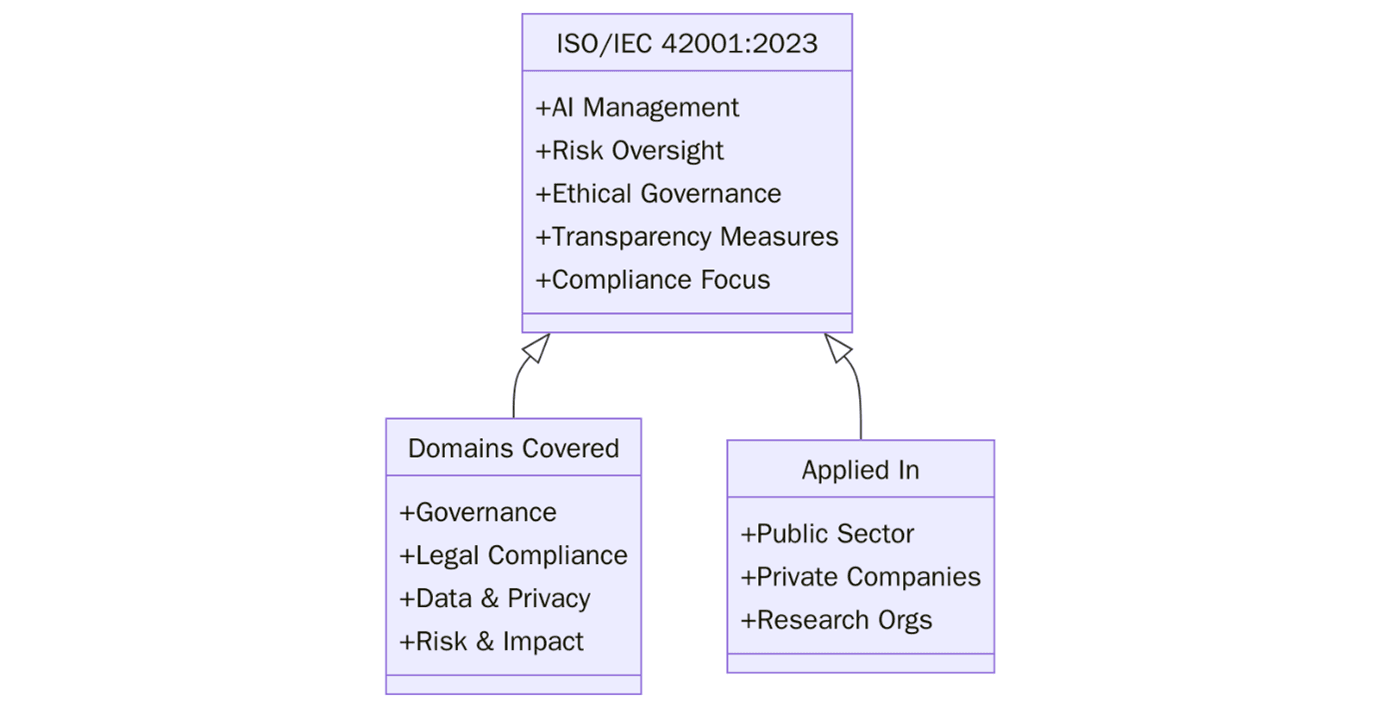
It supports organizations in setting internal policies, ensuring AI compliance with legal obligations, conducting risk assessments, and creating transparent decision-making models especially vital as AI tools become central to critical services such as healthcare diagnostics and autonomous transportation.
Purpose of the ISO 42001 Standard
The core objective of ISO 42001 is to enable organizations to:
- Build trustworthy and explainable AI systems
- Implement clear governance and oversight for AI operations
- Address regulatory risks associated with AI misuse
- Align with emerging laws such as the EU AI Act and U.S. AI Bill of Rights
- Promote responsible AI practices that balance innovation and safety
Scope and Applicability
ISO/IEC 42001 applies to any organization that designs, develops, deploys, or integrates AI systems, whether they are start-ups in Austin building generative AI apps or large-scale healthcare systems in Boston deploying diagnostic models. The standard supports both in-house AI developers and companies that outsource their AI infrastructure.
Its flexibility makes it suitable for:
- AI software companies in San Francisco and Seattle
- FinTech firms in New York City
- Healthcare startups in Boston
- Autonomous vehicle developers in Phoenix
- AI-driven customer service platforms in Chicago
- Government and military AI oversight bodies in Washington D.C.
Why Demand is Increasing in the United States?
In 2025, several intersecting factors are accelerating the demand for ISO 42001 across American industries:
1. National AI Governance Initiatives
Following the U.S. Executive Order on the Safe, Secure, and Trustworthy Development of Artificial Intelligence, federal agencies and major government contractors are now required to conduct risk assessments and adopt ethical AI practices. ISO 42001 is quickly becoming the de facto framework used to satisfy these mandates, especially in regulated industries.
2. State-Level AI Regulations and Incentives
States like California and New York are introducing their own AI risk management regulations, requiring businesses to demonstrate how they prevent algorithmic bias and ensure explainability. Certification to ISO 42001 serves as strong evidence of compliance in legal proceedings and audits.
3. Commercial Pressure in Tech Hubs
In Silicon Valley, certification has become a competitive advantage—startups and large tech firms alike are seeking ISO 42001 to gain investor trust and client confidence, especially in B2B enterprise deals. Austin, Denver, and Atlanta are seeing a similar trend as they emerge as secondary tech hubs with growing AI ecosystems.
4. Risk Mitigation in AI-Heavy Sectors
Companies in healthcare (e.g., Raleigh, Pittsburgh), finance (New York City, Charlotte), and defense (Arlington, San Diego) are pursuing ISO 42001 to proactively mitigate reputational and legal risks from flawed or biased AI models.
5. Global Trade & Export Alignment
For AI solution providers in the U.S. looking to export services or platforms to the European Union, ISO 42001 is a bridge to meeting the technical documentation and safety obligations of the upcoming EU AI Act.
Clause Structure of ISO 42001:2023
| Clause | Title | Summary |
| 4 | Context of the Organization | Understanding AI role, risks, and stakeholder needs |
| 5 | Leadership | Governance roles, AI responsibility, and organizational commitment |
| 6 | Planning | Risk identification and measurable objectives |
| 7 | Support | Resources, skills, communication, and AI-specific documentation |
| 8 | Operation | Lifecycle controls across AI development, training, deployment |
| 9 | Performance Evaluation | Monitoring metrics, audits, explainability reports |
| 10 | Improvement | Corrective actions, incident handling, and continuous improvement |
Get certified for ISO 42001:2023 and lead the future of responsible AI. Contact Pacific Certifications at support@pacificcert.com today!
What are the implementation and documentation requirements?
Organizations must conduct a gap assessment, establish an AI governance policy, and integrate risk management tools. Key documents include:
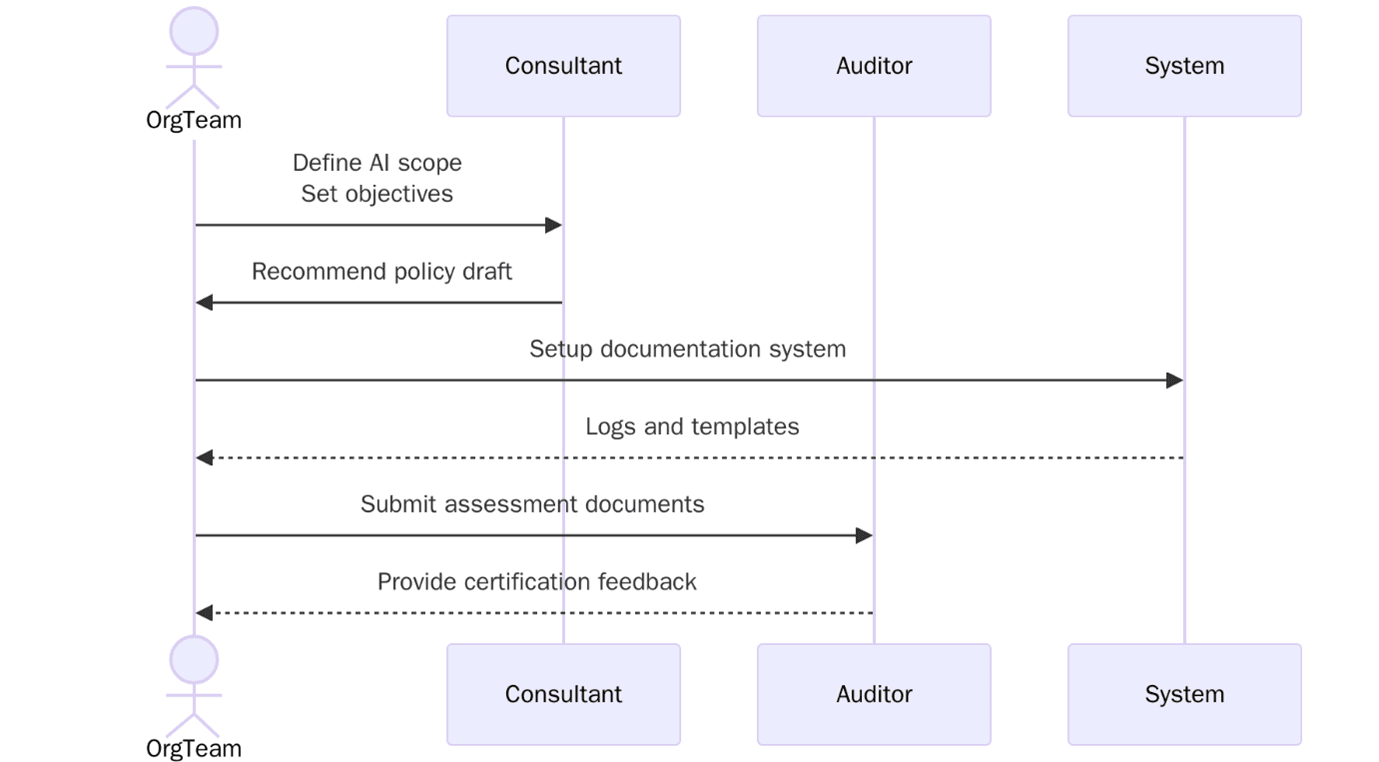
- AI Management System policy
- AI ethics framework
- Data sourcing and model training protocols
- AI bias testing records
- Stakeholder transparency reports
- Internal audit checklists for AI lifecycle stages
What are the benefits of ISO/IEC 42001 Certification?
Builds organizational trust by demonstrating transparency and oversight in AI development.

- Supports compliance with U.S. Executive Orders and anticipated AI laws.
- Aligns with international standards, especially helpful in EU trade.
- Especially important in B2B SaaS sales and government tenders.
- Clarifies responsibilities and procedures for AI teams and leadership.
How Pacific Certifications Can Help?
As an accredited and globally recognized certification body, Pacific Certifications provides ISO 42001 certification for organizations across all major U.S. states and cities. While we do not offer consulting, our independent certification services help your organization:
- Establish trust and credibility in your AI operations
- Fulfill RFP and compliance requirements
- Get certified through professional audits based on ISO 42001 criteria
- Ensure consistent audit readiness with annual surveillance support
To initiate the certification process, reach out at support@pacificcert.com
Ready to get ISO 42001:2023 certified?
Contact Pacific Certifications to begin your certification journey today!
Suggested Certifications –
Read more: Pacific Blogs
